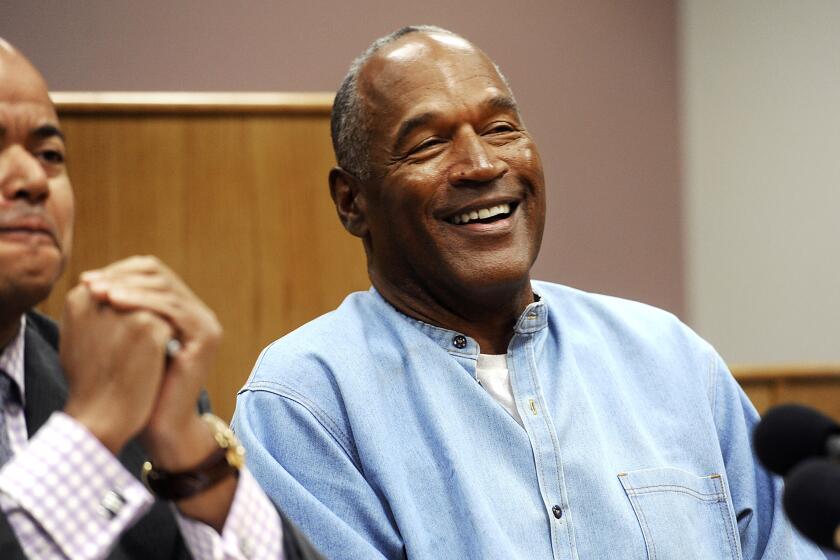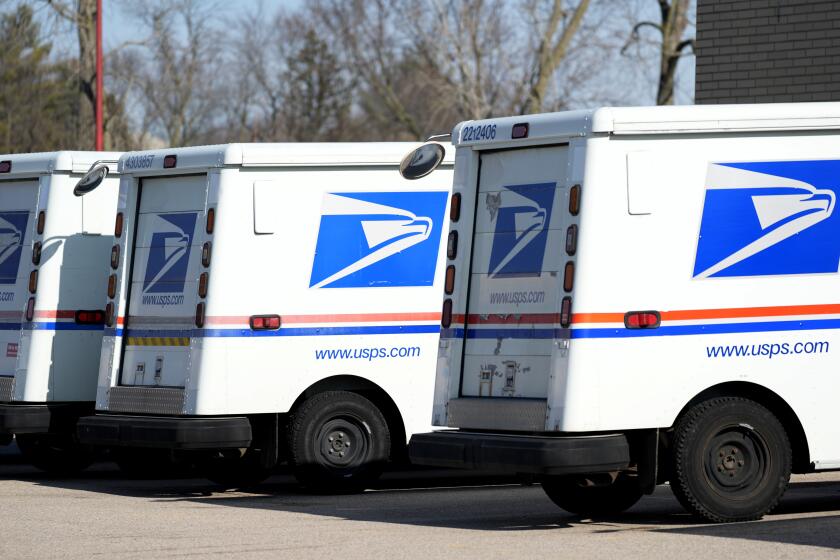Ads praising mayor raise eyebrows
Los Angeles Mayor Antonio Villaraigosa drew cheers from environmentalists just over two months ago when he issued a new political promise: eliminating coal from the Department of Water and Power’s fuel mix by 2020.
Instead of waiting a decade to see if that promise comes true, a Sacramento-based advocacy group decided to stage a publicity campaign thanking the mayor. It bought advertising space on city bus kiosks showing a smiling picture of Villaraigosa and the word “Successful.”
Jim Gonzalez, executive director of the group known as the Renewable Energy Accountability Project, said the ads are in no way meant as a rebuttal to an essay on Villaraigosa in the June issue of Los Angeles magazine, whose cover featured a more grim-faced image of the mayor and the word “Failure.”
“Here we observed a courageous local official basically boldly stating that in the next 10 years that they’re going to stop using out-of-state coal to generate 40% of their electricity,” Gonzalez said. “It’s a strong message and a message that I think really should be heard.”
Still, critics of the DWP have questioned why the environmental group chose to praise the mayor for a pledge that is two months old and as many as 11 years from completion. “How do you celebrate someone for making a promise and end up calling them successful?” asked Ron Kaye, a blogger and former editor of the Los Angeles Daily News who signed the ballot argument against the solar plan known as Measure B earlier this year.
The DWP gets roughly 44% of its electricity from two coal-powered plants. Although the utility’s contract with the Navajo Generating Station in Arizona runs out in 2019, one year before Villaraigosa’s deadline, its agreement with Intermountain Power in Utah does not expire until 2027, said DWP spokesman Joe Ramallo.
In his July 1 inaugural speech, the mayor expanded his goal for using more renewable power at the DWP, requiring that 40% of its generation come from solar, wind and geothermal sources. Before that speech, Villaraigosa had established a target of 35%.
Those promises were the result, at least in part, of advice that Villaraigosa received from his deputy mayor for energy and the environment, S. David Freeman. A former head of the DWP, Freeman was a principal of the Renewable Energy Accountability Project until March, Gonzalez said.
Gonzalez said neither Freeman nor the mayor was involved in the publicity campaign, which features the phrases “Thanks Mr. Mayor for Fighting Dirty Energy” and “Coal Gone by 2020.” He said his group plans to weigh in on the behavior of other politicians, nonprofit groups and private businesses
“We’re going to hold people accountable: praise them when they do something good, criticize them when they don’t,” he said.
Still, Gonzalez would not divulge the cost of the Villaraigosa ad campaign or describe its scope. He also refused to name the five biggest financial contributors to his organization, saying he would do so at the end of the year.
“I’ll only give you one -- me,” he added.
Gonzalez is the political consultant behind Proposition 7, a 2008 statewide measure that sought to place new renewable energy requirements on public and private utilities. After the measure was defeated, Gonzalez and other supporters of the measure created the Renewable Energy Accountability Project.
Since its formation, the group has criticized environmentalists with whom it disagreed, putting them in the “Green Scammer Hall of Shame” section of its website.
One target was V. John White, a lobbyist who is legislative director of Clean Power Campaign, a coalition of environmental groups and renewable technology developers. White drew jeers from the group for supporting a measure in 2000 that sought to fast-track the construction of power plants that rely on fossil fuel.
White said he and other clean-air advocates viewed the bill as an environmentally sound way to help the state respond to the effects of electrical deregulation. But he also said he suspects that he and others have been targeted by Gonzalez over their opposition to Proposition 7, which he called a poorly written measure.
“We tried to tell him to fix it and he didn’t,” White said. “He was very angry about it, and I think he was angry with other people who were opposed. So I don’t take it personally.”
Since Villaraigosa first appeared in the bus kiosks, more mayoral ads have been attached to chain-link fences that surround empty lots in such neighborhoods as Boyle Heights, Echo Park and Westlake. Freeman, the deputy mayor, said he had nothing to do with those posters but said he was happy with their message.
“Of course I think they’re great,” he said. “It’s my [plan] they’re talking about.”
--
More to Read
Start your day right
Sign up for Essential California for news, features and recommendations from the L.A. Times and beyond in your inbox six days a week.
You may occasionally receive promotional content from the Los Angeles Times.







